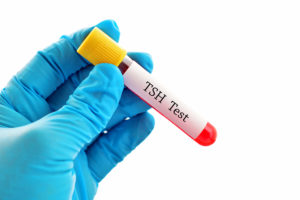Why Hypothyroidism is Commonly Misdiagnosed
Are you suffering from fatigue, brain fog, insomnia, unexplained weight gain, constipation, hair loss and depressed moods? Has your doctor told you that your blood work is normal? In this podcast, Dr. Hotze addresses why hypothyroidism is commonly misdiagnosed and what you can do to get the right diagnosis and help.
Podcast Transcription:
Stacey: Welcome to Dr. Hotze’s Wellness Revolution, I’m Stacey Bandfield here with Dr. Steven Hotze, founder of the Hotze Health & Wellness Center. Thank you for joining us today, and as always, if you have not downloaded our podcast, you can do so at hotzepodcast.com, that’s H-O-T-Z-E podcast.com. Well today, very excited for Dr. Hotze to talk about a very commonly misdiagnosed and undiagnosed illness that plagues millions of Americans and affects their lives in a negative way. Dr. Hotze.
Dr. Hotze: Thank you so much Stacey, and thank you each one of you for joining us today on Dr. Hotze’s…
Stacey: Your Wellness Revolution.
Symptoms of Hypothyroidism
Dr. Hotze: …my Wellness Revolution podcast and YouTube program. Do you have a decline in your energy level? Do you have difficulty with weight? Do you have a cold body temperature? Do you have brain fog, poor sleep habits, or your moods are up and down? You have depression? You have joint and muscle aches and pains? You have poor bowel function, either constipation or you have cramping, bloating, diarrhea, acid reflux? Do you get recurrent and chronic infections? If you’re a woman, have you had irregular menstrual cycles? Have you had problems with becoming pregnant? Have you had difficulty with carrying a baby to term? Are you puffy, are you pale, is your hair falling out? Is your tongue thick? Have you lost your romantic moods and inclinations?
Thyroid Hormones: T3 and T4
If you have one, some, or all of these symptoms, these are classical features of hypothyroidism. The thyroid gland in the neck produces thyroid hormones, and those thyroid hormones are secreted into the blood. There are two thyroid hormones that are secreted, T4 and T3. If you think of the back of my hand as being the thyroid molecule, T4 has four iodine atoms on it. That T4 molecule is the pro-hormone. It’s the inactive thyroid hormone that has to be converted within the cells of your body, and you have trillions of cells. It has to be converted to T3, it’s the thyroid molecule with three iodine atoms. That is what activates your power plants, your mitochondria in the cell, enables the cells to produce energy.
So, if you don’t make the proper conversion of T4, no matter how much you have in your blood, that’s the inactive thyroid hormone. If it didn’t get into cells, and if it didn’t get converted in your cells to T3, then your cells are going to run sluggish because the power plants are going to produce lower levels of energy. You see, thyroid is what enables your cells to produce and use energy. The excess energy is given off and gives our body our temperature. So, if you don’t get enough active thyroid hormone, the T3 molecule into your mitochondria, into the power plants in the cells, they’re just not going to work well.
Stacey: And where did you say the thyroid is located?
Dr. Hotze: The thyroid gland is in your neck, shaped like a butterfly, and that produces the thyroid hormones, the active and inactive thyroid hormones. Interestingly enough, the body produces about 96% of T4 in the blood, and about 6% of T3. And it has to enter the cells where the T4 is converted to T3. There’s an enzyme in there called deiodinase. Deiodinase means it removes an iodine molecule or atom off the T4.
That deiodinase enzyme is poisoned by fluoride. Fluoride’s a halogen that competes with iodine and it destroys that enzyme and makes it incapable of making a proper conversion, and this is important because in America, 70% of Americans are drinking fluoridated water. And ever since we put fluoride in the water, starting back in 1960, we’ve had a dramatic increase in weight gain, and a dramatic increase of individuals that have all the classical features of hypothyroidism.
 Thyroid Blood Tests
Thyroid Blood Tests
It doesn’t really matter what your blood test says. There are many conventional doctors say, “Well, I’m going to look at the thyroid stimulating hormone.” Which isn’t even the active thyroid hormone, and they look at that and they determine whether or not you have hypothyroidism, not based upon your clinical symptoms, which is the historic way you make a diagnosis of low thyroid, but they simply look at your blood. And if they look at your blood and you fall within this very wide range of normal, they go like, “Yeah, your blood tests normal.”
You can come in with all the symptoms of low thyroid, the fatigue, difficulty with weight, inability to think clearly, poor sleep, joint muscle ache and pains, fibromyalgia, sluggish bowel function, recurring chronic infections. If you’re a woman with an abnormal menstrual cycle, or infertility, et cetera, you can have all these signs, all these symptoms, the hair loss, the loss of the lateral third of the eyebrows, puffy skin, all these symptoms, and the doctor will look at you and he won’t see hypothyroidism because he’s only going to treat the blood.
And if your blood’s normal, then he’s going to say, “Well, I really think you’ll do well on some Prozac” and put you on an antidepressant, and put you on this sleep medication, anti-anxiety medication, which will simply make you sicker quicker because those are poisons. All these drugs that the doctors prescribe, pharmaceutical drugs, all of these drugs are toxins, which means they’re poisons.
You can’t poison yourself to good health, so my philosophy is this. If an individual comes to our office and they have the signs and symptoms of hypothyroidism, I don’t care what the blood test says, 95% of the time it’s going to be normal. And the way they determine…the lab determines the blood test’s normality. It takes the last thousand blood tests, it gets an average. And then it has two standard deviations on either side of that norm or that average or that mean. That encompasses 95% of the population. So the range for thyroid in a TSH in the blood is wide as the Grand Canyon, as tall as the Empire State building. So, you could have had good levels when you were younger. Now the levels have dropped by 50% or 60%, but you’d still fall within the range, so the doctor goes, “Well, you’re in the range, you’re in the low range, but you’re still in the range, not low enough to treat.”
I don’t treat blood tests. At the Hotze Health & Wellness Center, we treat our guests and we listen, and we give you a therapeutic trial. We treated over 30,000 individuals who have come to our center with the signs and symptoms of hypothyroidism, or people that have been treated with synthetic thyroid and haven’t done well, and we’ve had dramatic results, positive results, where people get their energy level up, they get their weight down, they get their metabolism up, they’re thinking clearly, their moods are good, they’re sleeping well, joint and muscle pains are gone, and they have energy, they have vitality, and they have enthusiasm for life.
That’s what thyroid can do for you. So, don’t let some conventional doctor tell you you’re normal because all your blood falls within the so called normal range, and you know you’re not normal. You don’t feel normal. You feel sick and tired, and you’re sick and tired of being sick and tired. You deserve a therapeutic trial of natural thyroid hormone.
Stacey: Absolutely. And this really is an epidemic isn’t it…
Dr. Hotze: It is.
Stacey: …Dr. Hotze, and it’s something that isn’t recognized, but with the fluoride in the water, and all the environmental toxins…

Dr. Hotze: Well listen. This whole deal with the fluoride in the water. I was missing this early and I moved away from it. Let me go back to it. In 1960, 16% of the American population was overweight. Half of those people, which would have been 8% of the population, were obese. Currently, 70% of the population is overweight in America, and 35% are obese. In Europe, they don’t allow fluoride in the water, and 16% of the people are overweight and 8% are obese currently.
That’s the difference between the United States and Europe, so I want to encourage you, if you have the signs and symptoms of hypothyroidism, why don’t you go to our website, hotzehwc.com, go to the symptom checker.
Stacey: Symptom checker, yes, absolutely. That’s a great, great tool to use.
Dr. Hotze: Right.
Stacey: Yes, you can do that. You can also give us a call at (281) 698-8698 for a complimentary consultation about your health. That’s (281)-698-8698, and we see it all the time, Dr. Hotze, people coming into our center, they have all these different symptoms and they’re never diagnosed properly and that’s why it’s so misdiagnosed. Because there is such a wide variety of symptoms and the doctors just don’t get it, when it could just be so simple as a therapeutic trial of desiccated thyroid. So we hope you find this information really interesting and we hope that you give us a call so you can find out more information on how you can get your health and your life back. Thank you for joining us today on Dr. Hotze’s Wellness Revolution.
